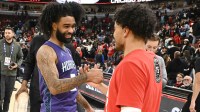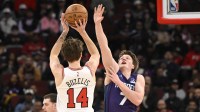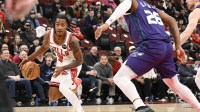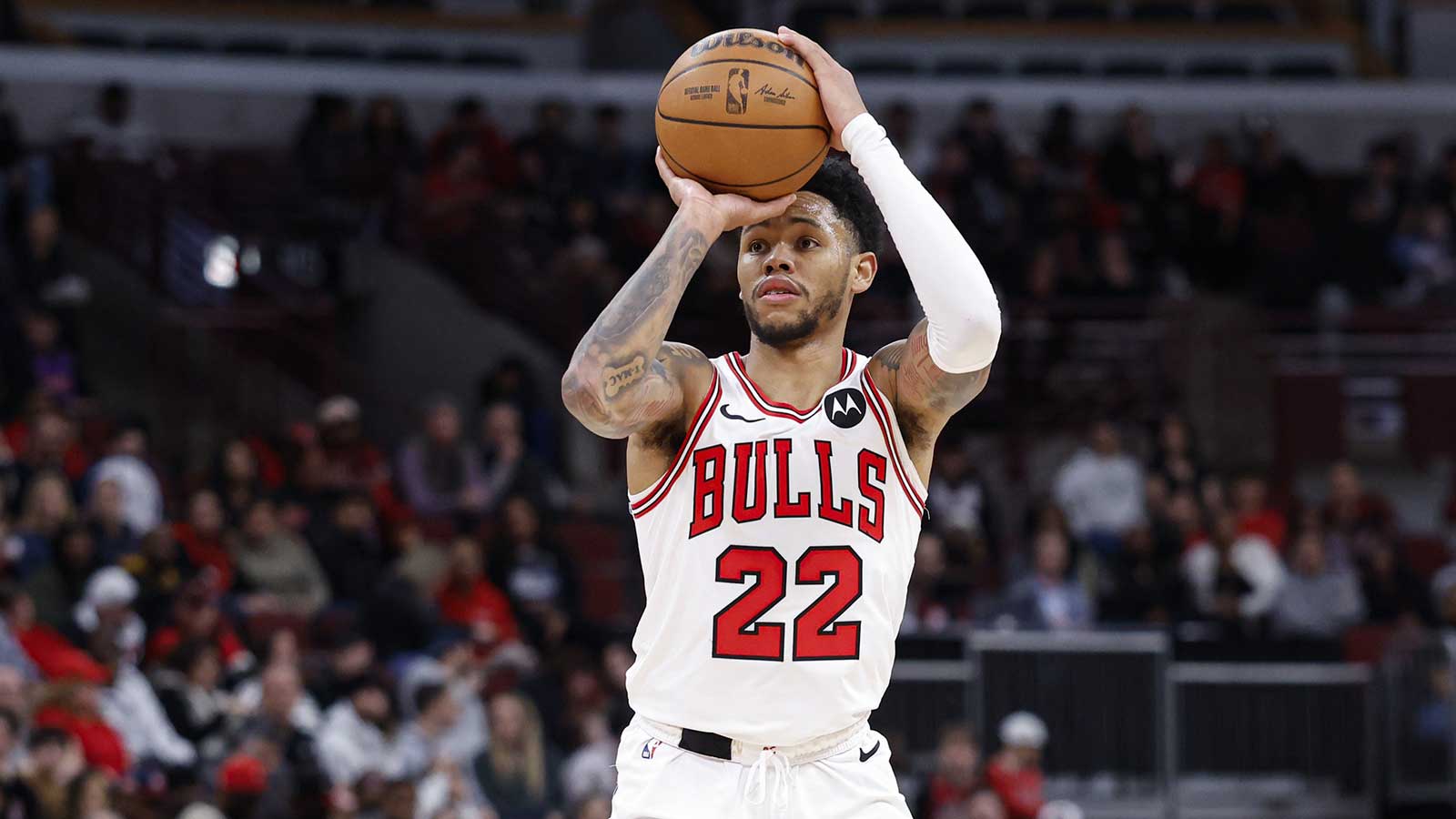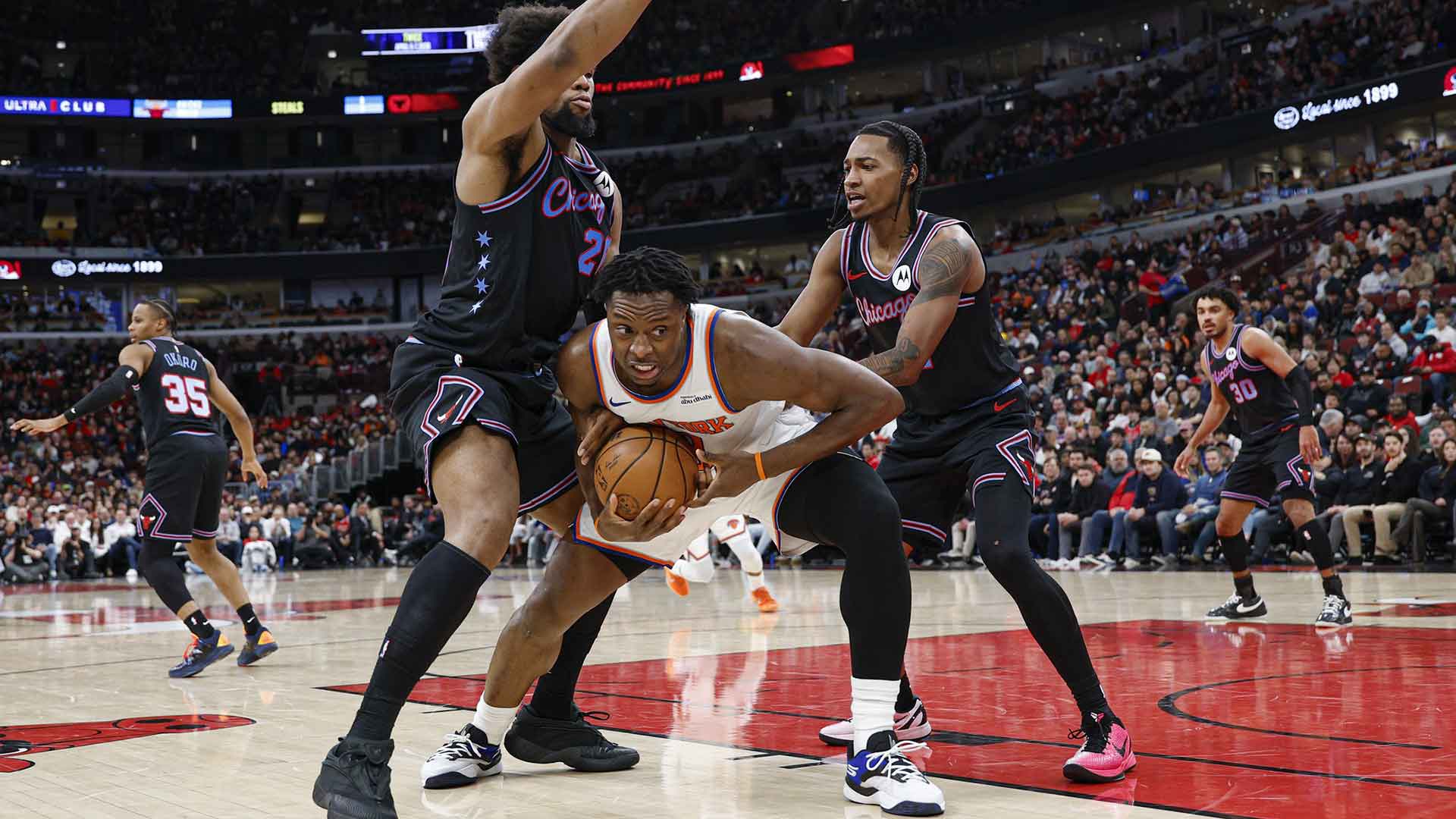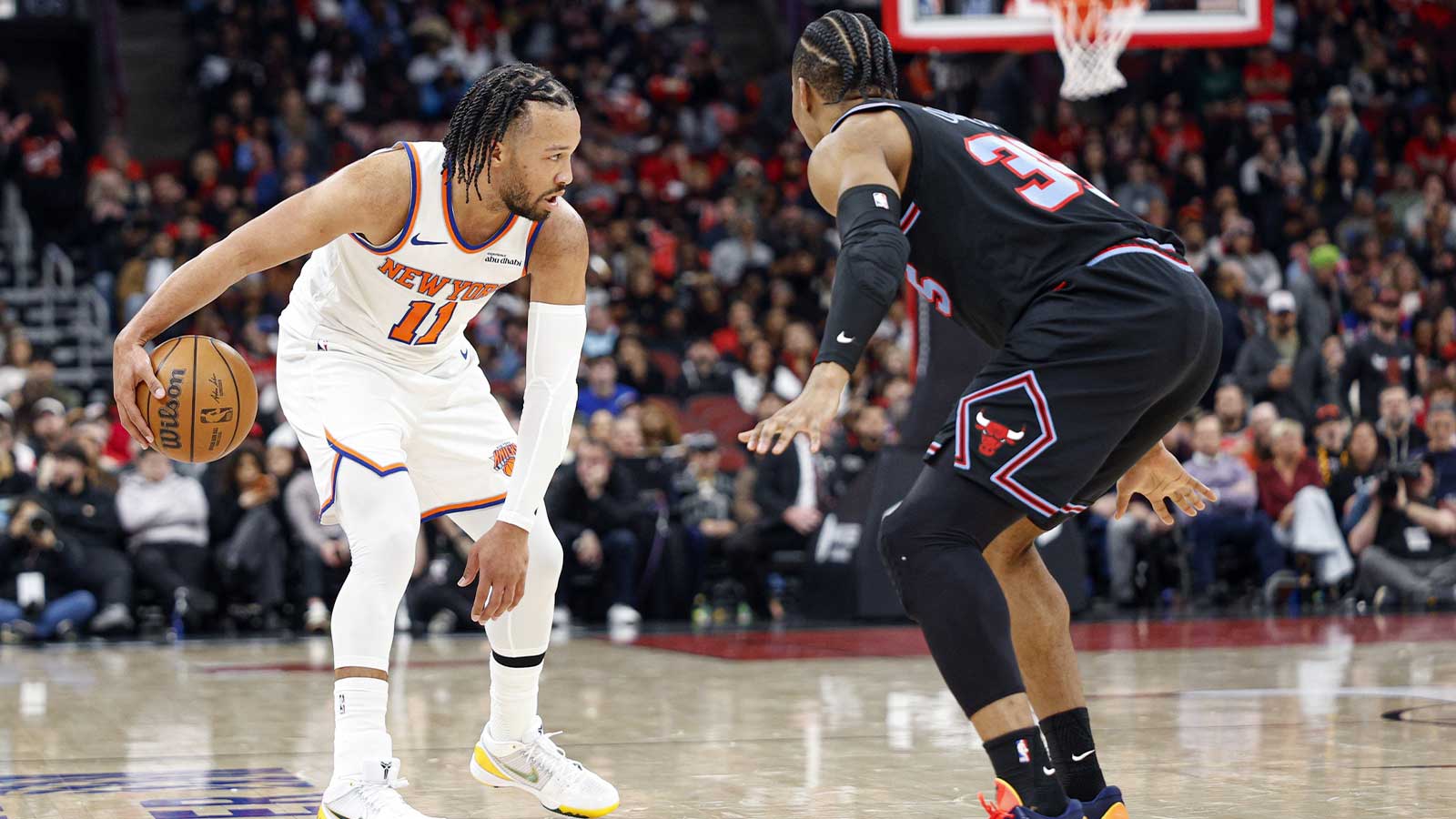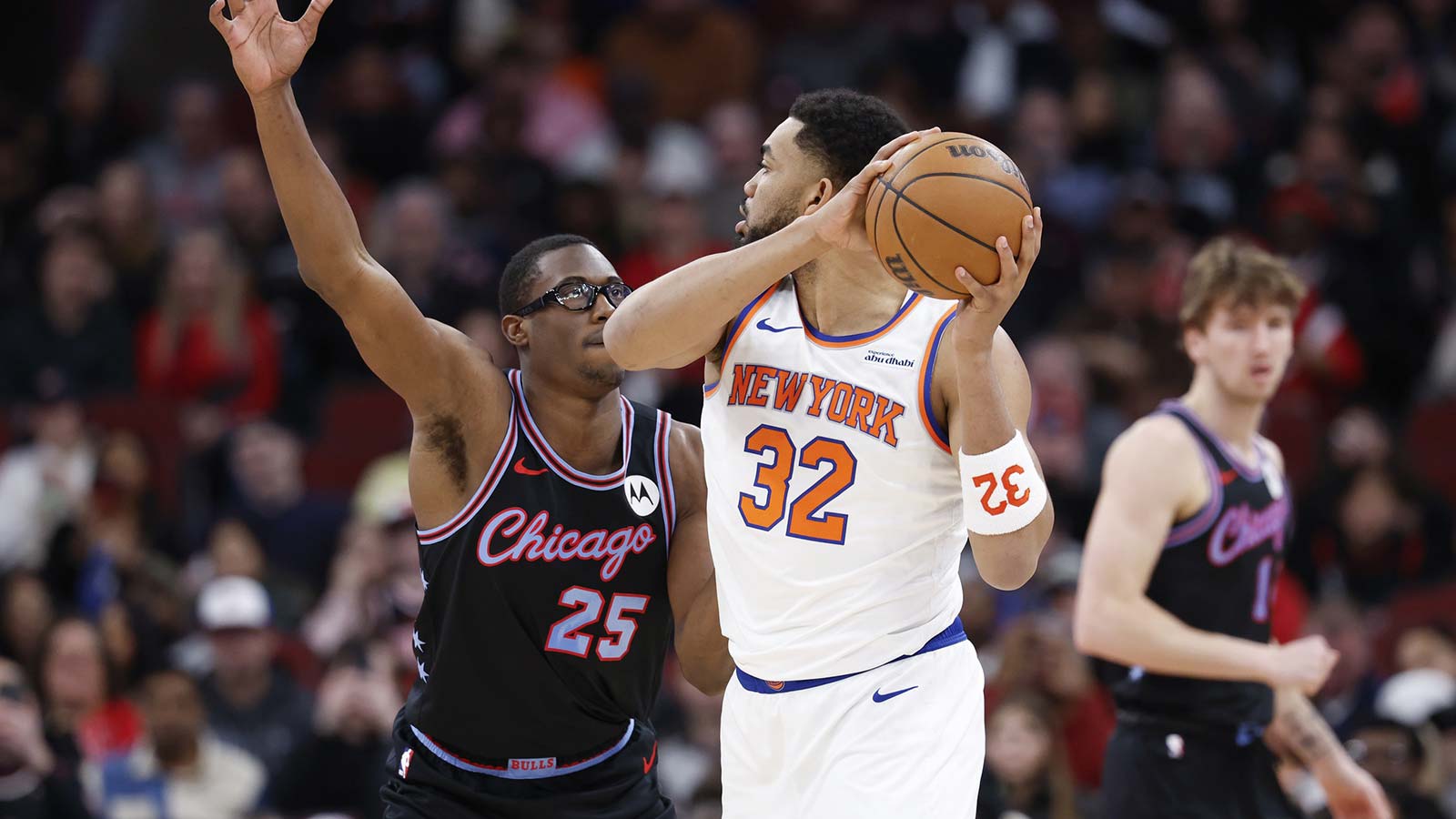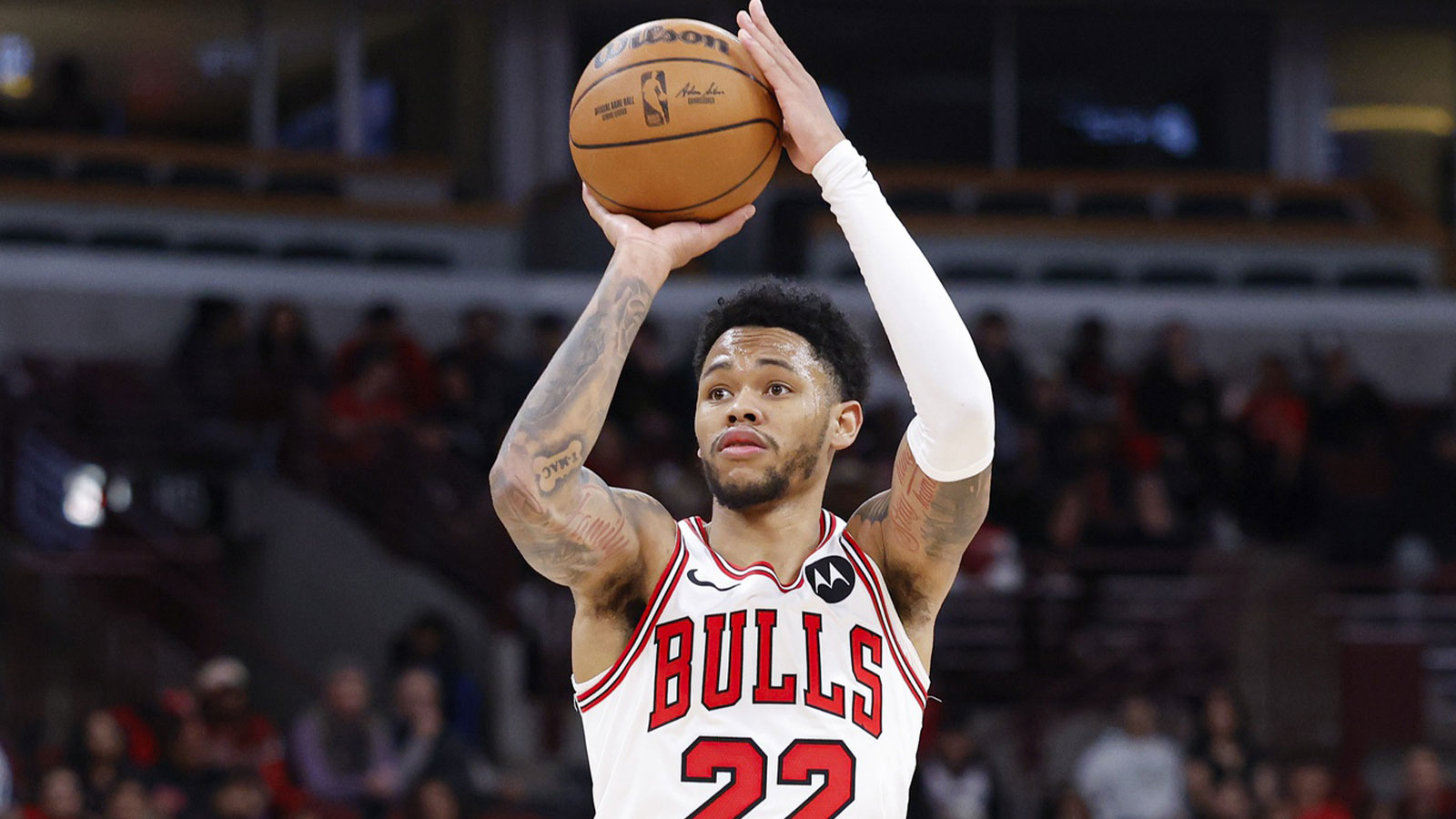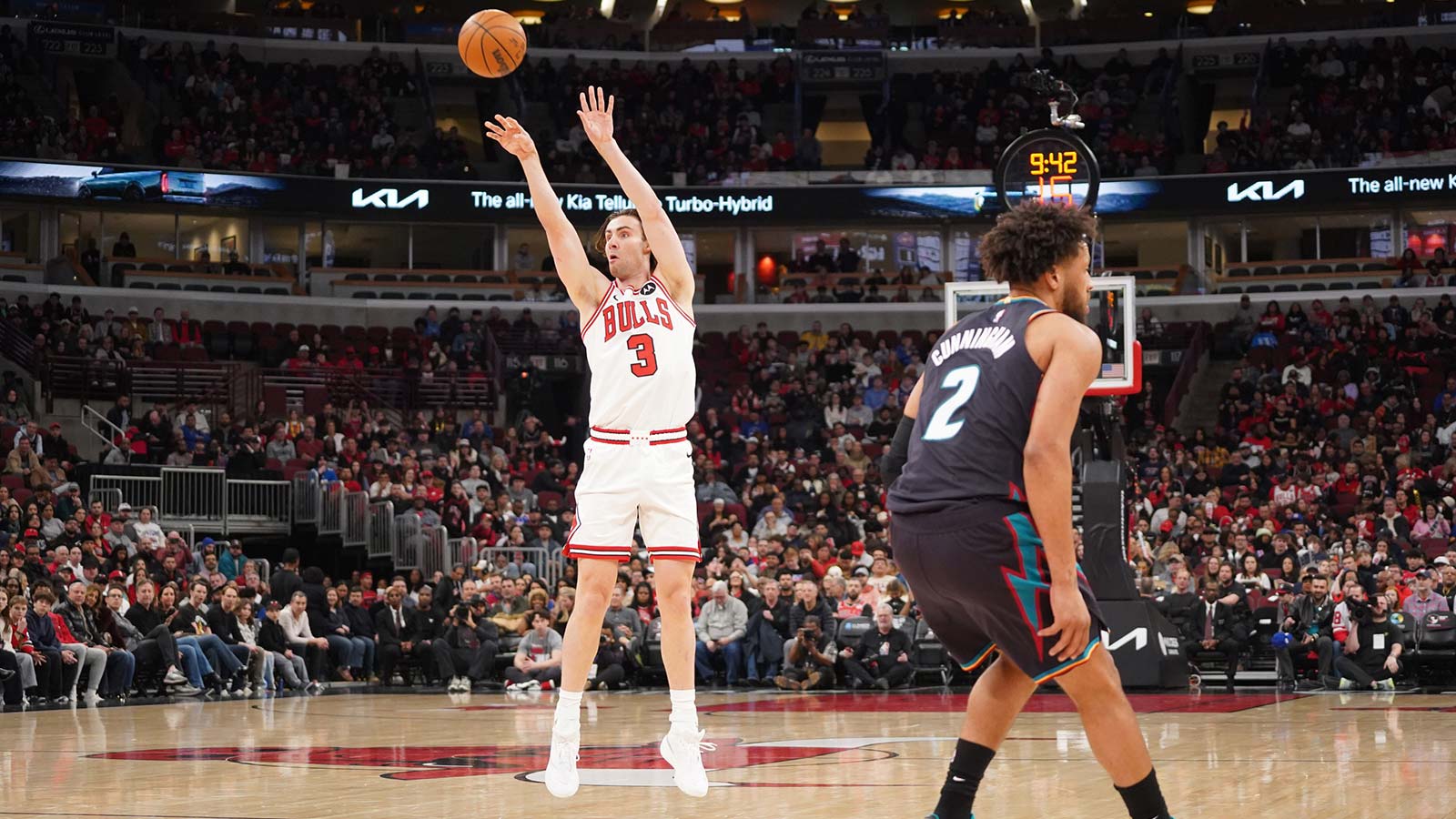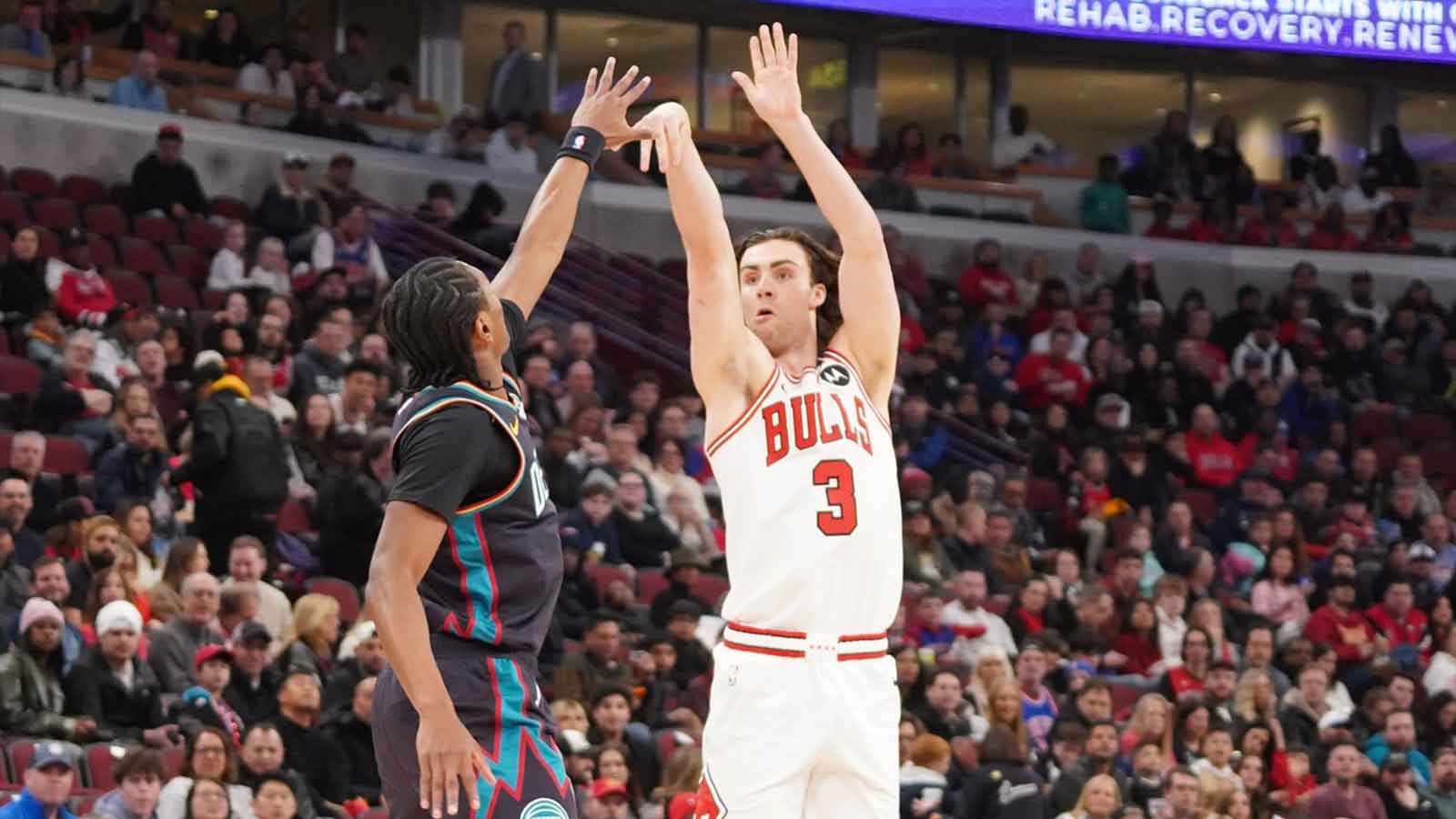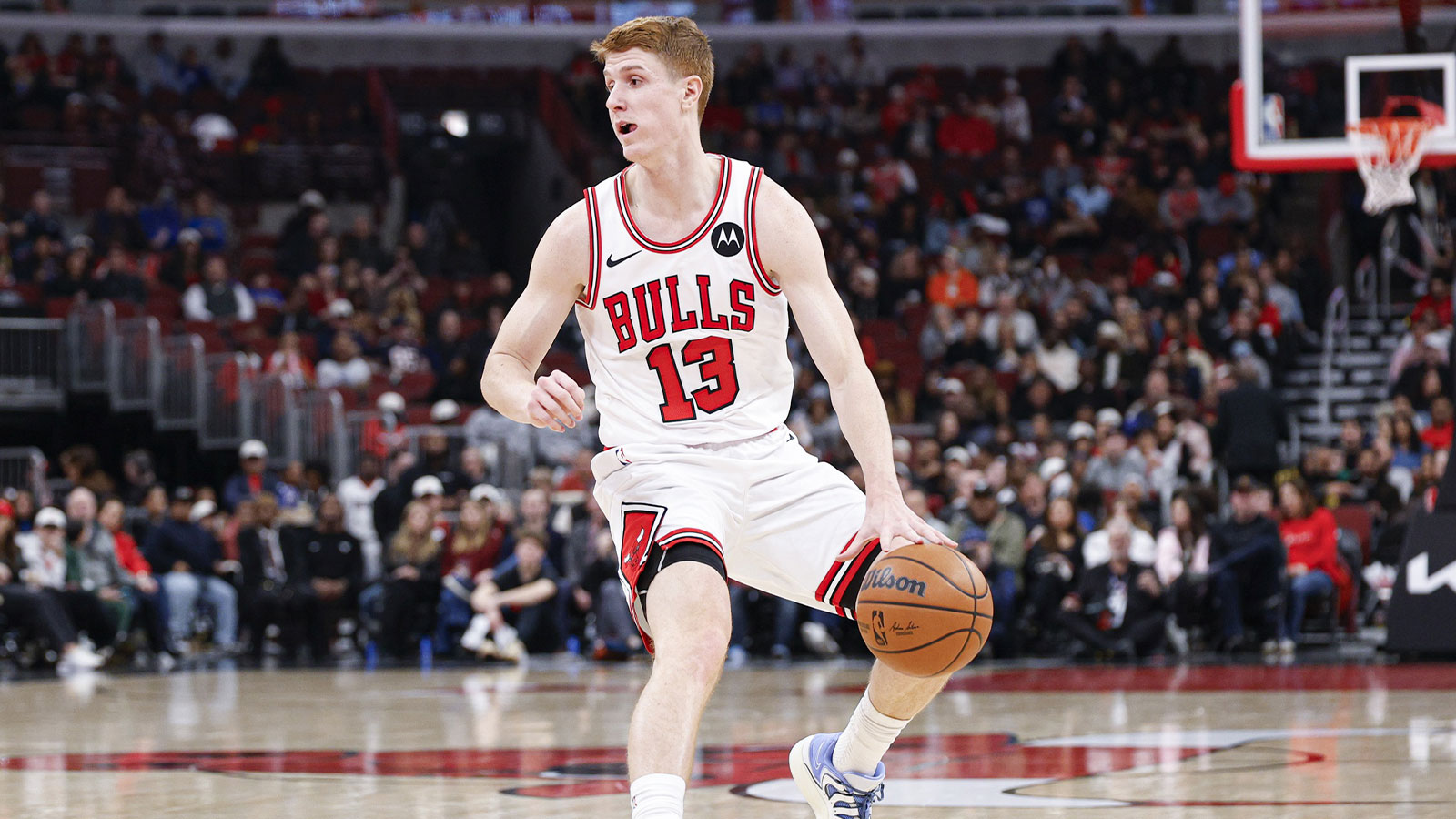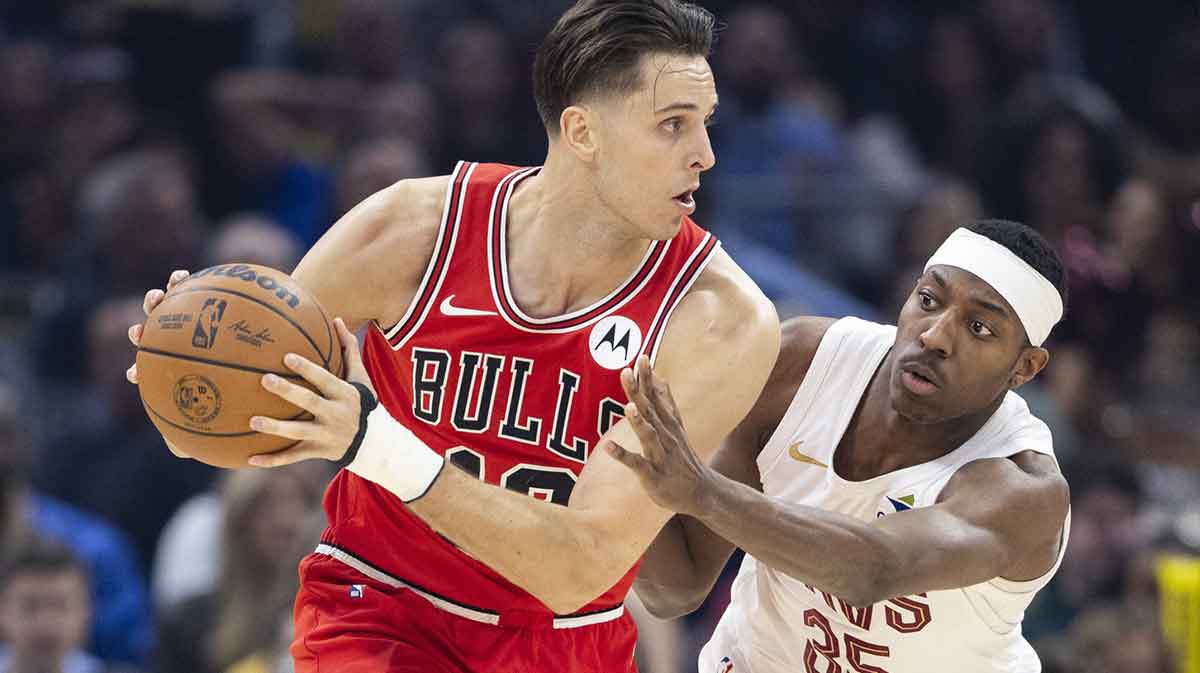The James Harden saga has ended, but his move to Brooklyn could only further expedite contenders growing aggressive in pursuit of elite talents, especially at shooting guard.
Any number of teams would undoubtedly love to trade for Washington Wizards star Bradley Beal. Perhaps the Wizards will be motivated to move Beal if the losing continues. But they are likely to have an enormous price, and there has been no indication general manager Tommy Sheppard is open to trading Beal.
What about the other options on the market? Well, Spencer Dinwiddie is out for the year. Victor Oladipo could become an asset for the Houston Rockets, but the Rockets are more likely to see how things shake out with Oladipo in H-Town, at least until the trade deadline.
These factors could well make Chicago Bulls star Zach LaVine the most desirable trade target.
LaVine appears to be making another leap this season, averaging 27.4 points, 5.3 assists and 4.8 rebounds per game. He is growing into one of the more respected offensive players in the league, and could probably fetch a large haul for a Bulls team still trying to build for the future.
However, the Bulls should ensure the 25-year-old will be the centerpiece of that future. Here are four reasons the Bulls should retain LaVine through the remainder of the 2020-21 season and well into the future.
1. His playmaking prowess is only continuing to grow
It is interesting to do something of a side-by-side comparison of Beal and LaVine.
Beal had mostly been John Wall's sidekick in his first few years in D.C., a secondary playmaker who spaced the floor and could create off the dribble when it was demanded of him.
Of course, league circles think much more highly of Beal for his shot-creation and growing ability to set up his teammates. It was his rapid development into a superstar that convinced the Wizards to trade Wall and make Beal the franchise cornerstone.
LaVine is showing a similar sort of progress thus far. His scoring numbers continue to rise, and his True Shooting is over 64 percent this season. That makes sense, considering LaVine can score at all three levels, and do it incredibly efficiently.
Moreover, LaVine is averaging more assists despite having a lower usage rate than he did in each of the past two seasons. He is finding ways to be impactful even when he struggles to shoot the ball well, notching 10 assists in a win over the Dallas Mavericks on Sunday. Oh, he is also getting to the charity stripe more (albeit just slightly) than he has in his career, including at least eight free-throw attempts in each of the last three games.
LaVine is becoming savvier off the ball, as well. There were multiple times late in Monday's game against the Houston Rockets when he cut from the wing towards the basket when Bulls guards drove baseline, resulting in easy baskets at the rim.
The turnovers (4.1) are a bit of concern given LaVine's usage rate is under 30 percent. But the Bulls are still in the early stages of implementing Billy Donovan's offense, and LaVine could be more efficient with the ball once everyone gets more comfortable with that system.
Why would Chicago move a 25-year-old guard who has yet to even reach his full playmaking potential, especially in the first full year of an entirely new front office and coaching staff?
2. Billy Donovan
Speaking of that last point, LaVine really seems to relish playing for Donovan thus far. Similarly, Donovan appears to be enjoying coaching up Chicago's young roster.
The former Oklahoma City Thunder head coach has a way of motivating his players. He is at it again early this season.
Billy Donovan shares a metaphor about #Bulls needing to learn how to win:
“I’d like to go to the moon. I really would. I have no interest in doing what it takes to become an astronaut. So like, ‘I want to win.’ OK, great. Are you really willing to do what goes into winning?"
— Cody Westerlund (@CodyWesterlund) January 16, 2021
Donovan also hailed LaVine as an “elite, elite scorer” following Monday's win over the Rockets.
https://twitter.com/ChiSportUpdates/status/1351373635580276739
Indeed, Donovan's offense has helped unlock LaVine's full offensive potential. His screen-and-rolls with Wendell Carter have been unstoppable when Carter commits to diving to the rim, as was the case in a narrow loss to the Los Angeles Lakers on Jan. 8.
LaVine can sit behind the screens and create space to rise up for a 3-pointer or get to the rim when defenders hedge too hard.
It is LaVine's tremendous offensive output that makes him such a valuable asset, despite his defensive deficiencies.
Through games on Jan. 18, which players have done the most (or least) with their minutes during the 2020-21 #NBA season, per TPA? pic.twitter.com/Zivo4gC4AR
— NBA Math (@NBA_Math) January 19, 2021
9. Kawhi Leonard, Los Angeles Clippers: 21.25
8. Giannis Antetokounmpo, Milwaukee Bucks: 21.55
7. Nikola Vucevic, Orlando Magic: 21.92
6. Zach LaVine, Chicago Bulls: 22.0https://t.co/cMK94AC48A pic.twitter.com/ciYEnaFGBY
— NBA Math (@NBA_Math) January 19, 2021
Part of that success is LaVine simply having tremendous scoring potential at all three levels.
But his early efficiency also has to do with Donovan putting him in more positions to score, including playing faster (Bulls rank second in pace). It is worth seeing more of what the Donovan-LaVine partnership has in store.
3. Questions about the supporting cast
One of the main reasons the Bulls cannot afford to move LaVine is a simple fact they lack solid building blocks on the roster.
Lauri Markkanen will be a restricted free agent this summer. The 23-year-old is off to a strong start this season, averaging 18.7 points and 7.1 rebounds while also shooting 40 percent from beyond the arc on 7.1 attempts per game.
But Chicago has actually had a higher offensive rating with him off of the floor, and Markkanen is still a defensive liability with limited lateral mobility. Will Arturas Karnisovas be comfortable paying Markkanen a ton of money when it is still unclear how he fits on Chicago's roster?
Wendell Carter Jr. has shown subtle improvements on the offensive end but has not been the same kind of elite rim protector and versatile big he appeared to be in his rookie season.
Coby White is averaging more assists (5.9) and rebounds (5.2) but has otherwise been quite inefficient—especially in reference to the above TPA graph—with his minutes. White's -2.8 defensive box plus-minus is also the worst on the team, and he has shown very little growth on that end of the floor.
In essence, LaVine is really the only proven commodity on the roster. Yes, he has plenty of defensive deficiencies. But those deficiencies are all the more glaring because he plays the overwhelming majority of his minutes alongside White in the backcourt.
Trading LaVine would really signal the Bulls blowing things up entirely, which could be trivial if LaVine keeps Chicago in the playoff hunt this year.
4. Cap space
Chicago will have a ton of cap space this summer.
The downside to this is the lack of star free agents available this offseason. It also remains to be seen whether the Bulls can attract top guys to the Windy City or not.
However, the cap flexibility does allow Karnisovas to reconstruct the roster, if he chooses, or to take on salaries for star players or accrue draft capital. All those things are tremendously valuable in assessing how best to build around LaVine.
There is a path to the Bulls building sustainable success, particularly when considering cap space and the fact Karnisovas has experience assembling talent from his days with the Denver Nuggets. Perhaps he would actually prefer to do this from the ground up.
Still, retaining LaVine as the still-budding face of the franchise would seem to be the best move for the Bulls if they hope to maintain some semblance of a competitive identity in the near future.






